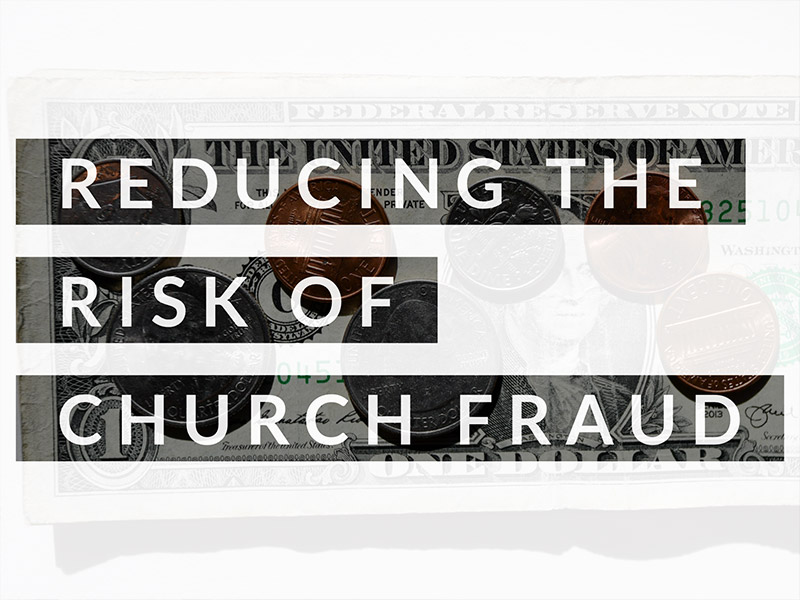Reducing the Risk of Church Fraud

I imagine church fraud is not a high priority discussion item at most of our church board meetings. The thinking is, “This will never happen at our church.” Given the daily duties and demands of church leaders it is not easy to focus on factors that can protect or diminish integrity and reduce the risk of fraud. I would strongly encourage you to spend some time, at least once a year, to ensure your governance and financial controls are minimizing the risk of fraud.
Churches are susceptible to fraud for a few reasons. Typically, high degree of trust and close personal relationships exists within a church. Most financial transactions at churches are handled be volunteers and it is assumed that all volunteers have pure motives. These factors create a false sense that accountability is not needed which leaves the door open for fraud and misuse of funds.
We cannot eliminate all fraud. This would require an unreasonable number of resources and procedures and controls that would be highly ineffective. Our goal should be to find a good balance between preventive efforts and risks. The most important factor in minimizing fraud is the culture of the church. The Senior Pastor and leadership team must believe and teach that financial management with integrity is a high priority. Church leadership must send the message that internal controls and documentation are important.
Here are a few other steps to take which will help minimize the risk of fraud:
- Establish written policies and procedures that clearly define roles and responsibilities.
- Maintain segregation of duties, with multiple people involved to prevent and detect problems and monitor the effects of change on people, processes, and systems. This can be challenging for small churches but is important for checks and balances.
- Monitor internal and external fraud risk and know how to respond to suspected fraud.
- Ensure that the board receives timely, accurate, and reliable financial reports.
- Plan for periodic internal audits and audits performed by third parties. Audits can be “right sized” to fit the size of the church. A financial review can even be performed by a third-party group of volunteers. The point is to have a fresh set of eyes review books and records.
The list above only scratches the surface as to things churches can do to minimize fraud. I recommend a resource called The 9 Essentials for Avoiding Church Fraud prepared by the ECFA.
Please feel free to contact me if I can do anything to help you strengthen your financial process, controls, or procedures.
Scott Thorson
